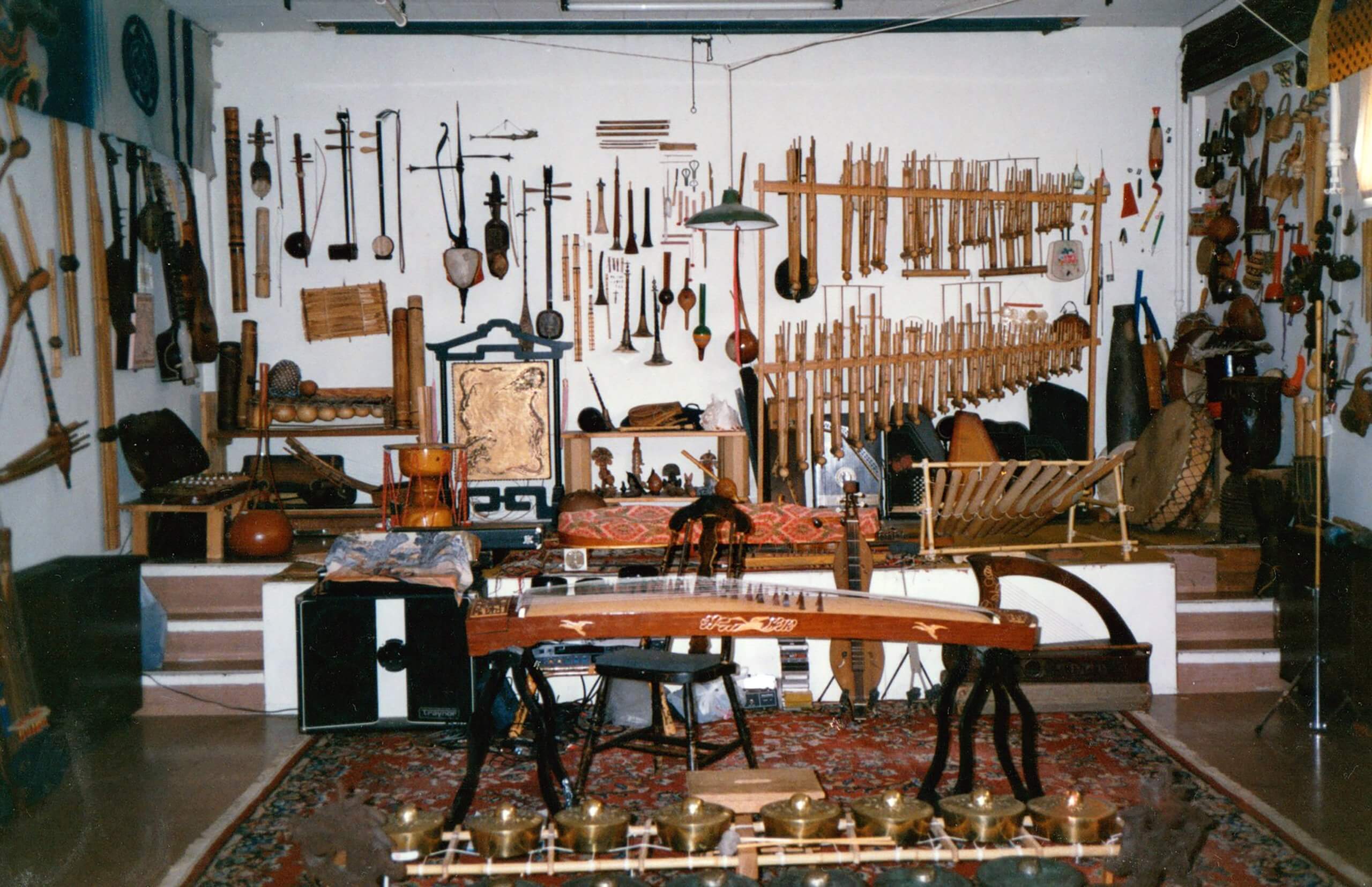Lecture by Randy Raine-Reusch
The purchase of a $35 plywood mountain dulcimer in 1970 was the beginning of a working collection of musical instruments Randy Raine-Reusch used as a professional international performer. Over five decades, Raine-Reusch traveled around the world acquiring over 1000 musical instruments from predominantly non-western cultures. Instruments were collected for their uniqueness, playability, sound quality, and to be used in performances, movie soundtracks, TV shows, and on recordings by artists such as Aerosmith. There are fundamental differences of working collections from other kinds of collections in acquisition, use, maintenance, storage, and documentation. To retain the performance readiness of a world instrument collection also required the acquisition and use of traditional knowledge and methods from within each culture. Recently, most of Raine-Reusch’s collection was retired from performance and will be put on public display in a museum. This raises questions on the changes to maintenance, display methods, documentation, storage, and use. In this presentation, Raine-Reusch will discuss his ongoing relationship with this collection, its transformation, and the resulting issues.
Randy Raine-Reusch is a composer, concert artist, instrument collector, and organologist specializing in non-western instruments, Raine-Reusch was the former Director of Acquisitions of the Musical Instrument Museum in Phoenix, Arizona; a consultant and guest curator for the Museum of Making Music in Carlsbad, California; and a consultant for the Stearn’s Collection at the University of Michigan, Ann Arbor. He was a visiting lecturer at Kenyon College, and a visiting scholar at the Central Conservatory of Music in Beijing. Raine-Reusch has done research on music and musical instruments in Japan, China, Korea, Thailand, Vietnam, Malaysia, Indonesia, Philippines, Vanuatu, and Australia.
Part of the Global Archiving and Instrument Curation Series and the Nazir Ali Jairazbhoy Colloquium Series, sponsored by The UCLA Herb Alpert School of Music Department of Ethnomusicology, The UCLA Ethnomusicology Archive, and The World Music Center at UCLA, with support from the Dean of The UCLA Herb Alpert School of Music.
